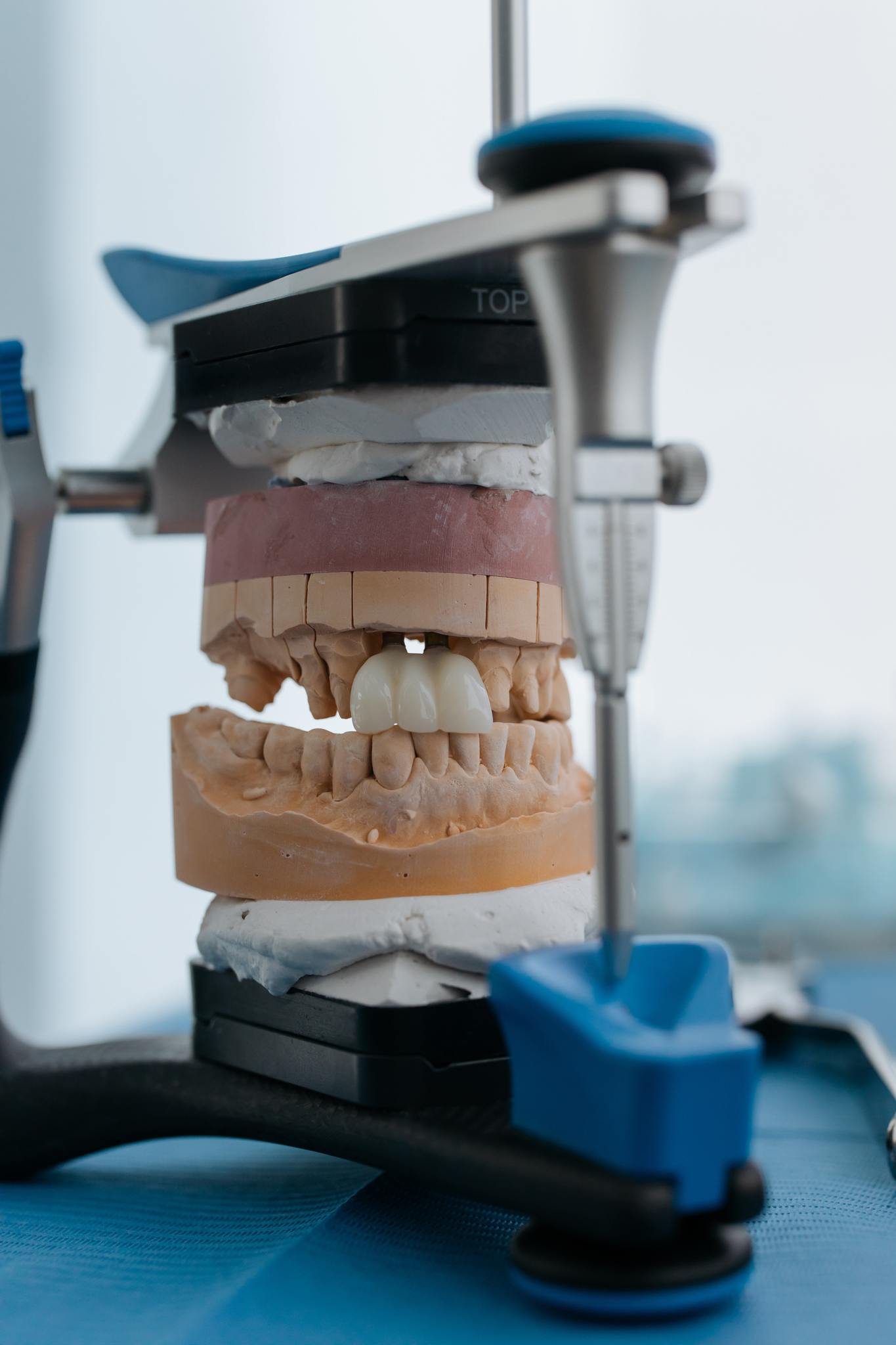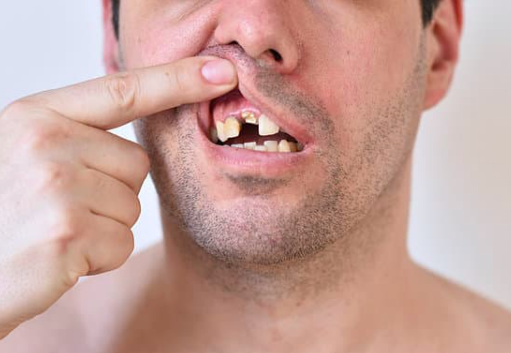Loose dentures can be frustrating for denture wearers. Dentures are designed to fit properly to be stable and retentive, restoring oral functions like chewing and speaking and preserving and protecting oral structures like the gums and the underlying bone.
Loose dentures could lead to impaired oral functions and more serious consequences if not addressed promptly. In this article, we will discuss the causes of loose dentures, potential methods for preventing them, and effective solutions for addressing the issue of loose dentures.
What causes dentures to get loose?
So what causes dentures to get loose? Various factors cause loose dentures. Here are some reasons why:
Bone resorption
The residual ridge is the bony ridge that remains after tooth extraction. When teeth are extracted, the bone underneath the gingiva undergoes gradual processes called resorption and remodeling. As your bone shrinks, stability and support get compromised, resulting in loose dentures.
Pathologic soft tissue conditions
Conditions like epulis fissuratum and flabby ridges can cause loose dentures. Untreated torus palatinus and torus mandibularis or bony overgrowth in the palate or at the alveolar bone can also cause ill-fitting dentures.
Dry mouth
A dry mouth can cause loose dentures. According to Mendez et al, saliva is needed for retention because it creates helps create cohesion, adhesion, and tension between the denture and mouth.
Poor denture quality
Overextended denture borders can cause loose dentures. Metal clasps that are made poorly can be deformed easily and can also result in loose dentures.
Normal denture wear
Your denture is made of acrylic that wears over time. This is a normal process and to be expected especially if your dentures are more than 5 years old already.
Improper denture care
The use of improper cleaning tools to clean your dentures can affect the acrylic and result in loose dentures.
Parafunctional habits
Abnormal habits like teeth grinding can result in the deformation of your dentures.
What to do if your dentures are too loose?
You can use any brand of commercially available denture adhesives. But this is not a long-term solution for loose dentures.
Your dentist can give you options for a reline or rebase depending on the situation. Extreme denture looseness can be solved by implant-supported dentures but it is best to seek advice from your dentist first.
Is it normal for dentures to be loose?
As mentioned above, there are a lot of factors that contribute to why dentures become loose. Dentures can feel loose or ill-fitting over time as changes in the oral cavity occur. Pathologic conditions like dry mouth can affect the retention of complete dentures.
A new denture wearer might feel that their dentures are loose especially if they have not adjusted to it yet. While some degree of looseness is normal, it is still best to seek advice from your dentist so that they can assess the best course of action for your case.
How can I make my dentures fit tighter?
There are different ways that you can make your dentures fit tighter. Here are some of those:
- Regular dental checkups – It is recommended to visit your dentist twice a year for dental checkups. Your dentist can assess the condition of your residual ridges and surrounding oral tissues like your gums and cheeks and judge whether you need a new denture or not.
- Denture adhesives – As mentioned above denture adhesives can help but only to a point. If your denture is too loose, it is better to consult a dentist.
- Denture readjustment – If your dentures have metal clasps, you can have your dentist readjust them. Your complete dentures can be relined or rebased depending on how loose they are.
- Avoid using toothbrushes and toothpaste to clean your dentures – Your toothbrush and toothpaste are too abrasive for the acrylic in dentures. They will make your dentures wear out quickly and that can result in loose dentures. There are proper cleaning materials for dentures that are available in the market.
- Change your diet – It is best to eat softer foods to make chewing easier and not put too much work on your dentures. If you are going to eat meat, it’s better to shred or make them into smaller pieces before you chew them. Avoid sticky foods, nuts, and any hard foods.
- Stay Hydrated – Drinking enough water can prevent dry mouth and improve saliva production which helps in denture retention.
New dentures are loose
New dentures can feel loose and uncomfortable especially if it’s your first time wearing one. Eating and speaking might be a little uncomfortable for a while and you might get anxious and frustrated. But patience and constant practice are the keys to getting acclimatized quickly to your denture.
If your upper denture is loose, try sucking on them. This will help the denture stick on your arch. A dry mouth can increase the feeling of loose dentures. If this happens, try drinking more water to increase saliva production.
If problems occur during your adjustment phase, you can call your dentist immediately to schedule an appointment.
How to fix loose lower dentures
A flat lower arch can cause loose lower dentures. It can be very difficult to manage in terms of stability, retention, and support because there’s not enough bone to secure your denture in place and thus your denture will be quite loose.
This can be fixed by either relining or rebasing. Relining involves filling up the tissue side of your denture with new acrylic material so that your denture fits again. Rebasing involves replacing the whole denture base while retaining the denture teeth.
Your dentist might recommend implant-supported dentures to solve this problem. Implants are pieces of metal that they surgically place in your jawbone to serve as support for your denture. This can be quite expensive and not all patients qualify for this procedure so it’s better to ask your dentist about it.
Conclusion
Loose dentures can be quite challenging to manage. There are different factors that cause denture looseness and treatment is unique for every individual. There are short-term and long-term solutions for loose dentures. In case of extreme looseness, implant-supported dentures might be necessary. It is important to go to your dentist so that they can assess the problem and recommend a solution that is tailored just to your situation.
References
Méndez JE, Madrid CC, Tirado LR. Saliva and alternative adhesive systems for complete dentures. Rev Fac Odontol Univ Antioq 2013; 25(1): 208-218.
Kiesow, A., Sarembe, S., Pizzey, R. L., Axe, A., & Bradshaw, D. J. (2016). Material compatibility and antimicrobial activity of consumer products commonly used to clean dentures. Journal of Prosthetic Dentistry, 115(2), 189-198.e8. https://doi.org/10.1016/j.prosdent.2015.08.010
McCord, J., Grant, A. Identification of complete denture problems: a summary. Br Dent J 189, 128–134 (2000). https://doi.org/10.1038/sj.bdj.4800703
Dziedzic, A., & Puryer, J. (2019). Complete dentures – assessment of the loose denture. Dental Update, 46(8), 760–767. doi:10.12968/denu.2019.46.8.760






Can I just say what a aid to seek out someone who really is aware of what theyre speaking about on the internet. You definitely know easy methods to deliver a problem to mild and make it important. Extra individuals need to read this and perceive this side of the story. I cant believe youre not more in style since you definitely have the gift.
[…] dentures are more common than many people realize. Dentures are foreign objects in the body, and naturally, our bodies—especially our mouths—tend to be […]